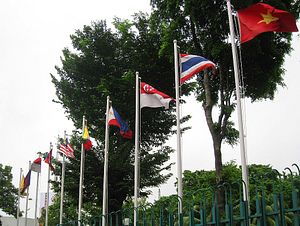Laos is better known for its youthful population than its graying one. It’s not aging anywhere near as fast as South Korea, or even its neighbors Thailand and Vietnam. But in a sign of the mounting regional concerns about shifting demographics, the country is turning its attention to one worry in particular: dementia.
Our “elderly population is changing quickly and we need to prepare for that,” said Dr. Sengchanh Kounnavong from Laos’ health ministry in a recent statement published by the WHO’s Center for Health Development. The Japan-based center is partnering with Laos to conduct the state’s first national survey on dementia as part of a two-year project.
The study will help Laos fill a gaping data hole on dementia, an umbrella term for diseases affecting memory and other cognitive abilities. Contrary to a widespread perception, dementia is not a natural part of aging. And there’s growing insights into rarer cases affecting younger people. But dementia still mainly affects older people, and Alzheimer’s disease is the most common form.
The Asia-Pacific region is especially hard hit. It’s home to nearly half of the world’s 50 million people with dementia, according to Alzheimer’s Disease International (ADI), a global federation of Alzheimer associations around the world. It estimates that in the Asia-Pacific alone some 71 million people will have dementia by 2050.
“Dementia is a looming epidemic in Asia as populations age,” DY Suharya, ADI’s regional director, told The Diplomat. But in a positive development she’s noticed a marked “shift” in how Southeast Asian governments have started to “prioritize” the condition.
Last year she was invited to present her group’s findings to the Association of Southeast Asian Nations (ASEAN) health meet in Vientiane, the capital of Laos. Earlier this month, in Japan, dementia was specifically recognized as a global health priority by leaders of the G20, a significant milestone for campaigners trying to improve the lives of people with dementia and their carers. Speaking from Jakarta, Suharya said, “dementia and aging are gradually getting the attention they deserve”.
Laos is the youngest of the 10-member ASEAN bloc with a median age of 22.7 years, according to a recent report. The proportion of people above 60 years is still low and will only begin to rise rapidly after 2020, it said. But the dementia study aims to help Laos plan for the future, providing evidence to update dusty policies for the elderly. Thailand and Vietnam are already grappling with the healthcare concerns presented by their aging societies. They are in a predicament the IMF has described as countries that risk growing old before they grow rich.
Dementia advocates say it’s important that Southeast Asian nations now back up the growing conversations about dementia with dedicated budgets and national action plans. So far in the region only Singapore and Indonesia have such plans in place, says ADI, while a few other countries include dementia within broader health or aging population priorities.
Low and middle-income economies in the region can turn to the experience of Asia’s wealthier nations already confronting an aging crisis. Singapore – the world’s second-fastest aging population after South Korea, according to UN figures — is getting dementia care right at many levels, says Suharya. She points to measures such as the city-state’s plans for its aging workforce, the focus on the needs of caregivers, and models for person-centered care. Further afield, Japan, which has the most aged society in the world, is leading on finding technological solutions for dementia care in the absence of a cure for the condition.
A major obstacle to getting people with dementia the help they need is stigma. This is a global problem, says Suharya, but one more pressing in poorer nations. “We need to create a dementia-friendly environment, challenging the idea that after a diagnosis you just go home and there’s nothing you can do,” she explains.
Last week Singapore’s government said it was planning to pilot a “dementia care village” as a new concept in residential care. The idea has been welcomed in many quarters as a positive move, with a similar project in the Netherlands deemed a success by some. But it’s also raised a few concerns as a wider model in case it ends up isolating people with dementia. “I think as a region it will be more cost-effective for people with dementia to live at home. But we need to train people in the community to support them,” says Suharya.
Laos is taking a small step in the right direction. A new set of data that helps us understand more about dementia could be useful not only for Laos but the region and world at large.

































